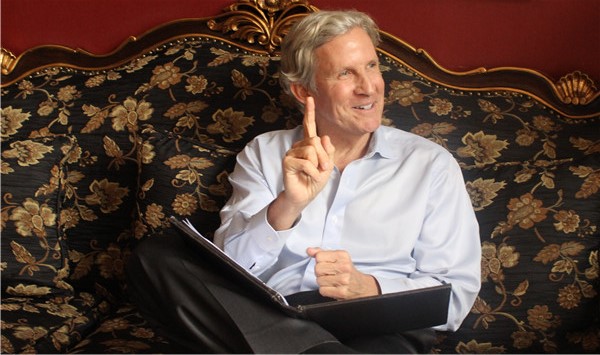
"The mystic chords of memory ... will yet swell the chorus of the Union, when again touched, as surely they will be, by the better angels of our nature."
With this, US President Abraham Lincoln ended his first inaugural speech in March 1861, with his country on the verge of civil war.
A documentary, tentatively titled Better Angels, is scheduled to be released in the United States and China more than 150 years since that speech in a bid to invoke its spirit of tolerance and forward-looking ideals at a time when relations between the two countries face some challenges.
According to William Mundell, Nobel Prize-winning economist Robert Mundell's son, who is making the movie, about two-thirds of the shooting is complete, and with $2.5 million in private funds from the US and Canada, it is likely to be out in the first half of next year.
The movie, which will show aspects of Sino-US relations, intends to have audiences in both countries reconsider the relationship in a new light, the producer says.
"It's not like a traditional documentary on the US-China relationship, which is typically monopolized by talking heads," William Mundell, 55, tells China Daily in Beijing. "It's more dramatic than analytical."
About 250 people have been interviewed to date for the documentary, including former US secretary of state Madeleine Albright, Chinese real-estate tycoon Wang Jianlin, Chinese policy-makers and government scholars, and entrepreneurs from both countries.
But, William Mundell says, ordinary Americans play the main role in looking at Sino-US relations through the lens of daily life, and how they can break down barriers between the two countries.
For example, the documentary records the account of Memo Mata, an American soldier who fought in Iraq, but was disillusioned by life in the US. Later, he found a fresh start in Shanghai, where he now works as a teacher and a successful American-football trainer for children.
"He has found his version of 'the American Dream' here," says William Mundell, who turned emotional while recalling this story from the documentary.
"For many Americans, China is the new 'land of milk and honey (promised land)'. In spite of obstacles, our ordinary characters find ways to resolve the issues by staying open-minded."
When Chinese entrepreneurs took up the opportunity to build a plant for copper wires in Thomasville, Alabama, a town with almost no investment in the past 45 years, the area's long-unemployed people also had their lives transformed with jobs there.
"It's a great illustration that not all Chinese investment leads to the loss of jobs in America. Chinese investment can be enormously beneficial for America. It doesn't always take things away. "
That is perhaps why William Mundell chose Malcolm Clarke, an Oscar-winning British director, who is known for his short movies on individual subjects, to helm this documentary.
"All the recent summitry, the endless conferences, the elaborate studies on cooperation did little to move the needle on the US-China relationship. I think that is because we had been putting the cart before the horse," he says. "No one was really addressing the infrastructure of the relationship, by which I mean Chinese public opinion on the US, and American public opinion on China.
"Our objective in making this film is to shatter the myth that Americans have about China and vice versa, to open hearts and minds."
The movie is expected to be a different take on the well-known story of China's rise and its impact on the US and the global economy through the voices of ordinary people, who have been missing from many mainstream media reports on the subject, he says.
"I want Chinese audiences to know that a large segment of America is still open and welcoming (China), notwithstanding what many may hear through the press and political establishment in both countries," William Mundell says.
"For the American audience, we want to introduce a China with a substantial similarity with their frontier past: China may have a greater appetite than America to take risks (today), and because of that, we should embrace China more aggressively to improve our own standing in the world."
William Mundell says today's political venues have limited effect on people's emotions, but films are different.
In 2010, Mundell produced a documentary, Gerrymandering. It is said to have helped pass reforms in California.
"Perhaps, Better Angels will follow the examples of these films and meaningfully change the political agenda between China and the US."





